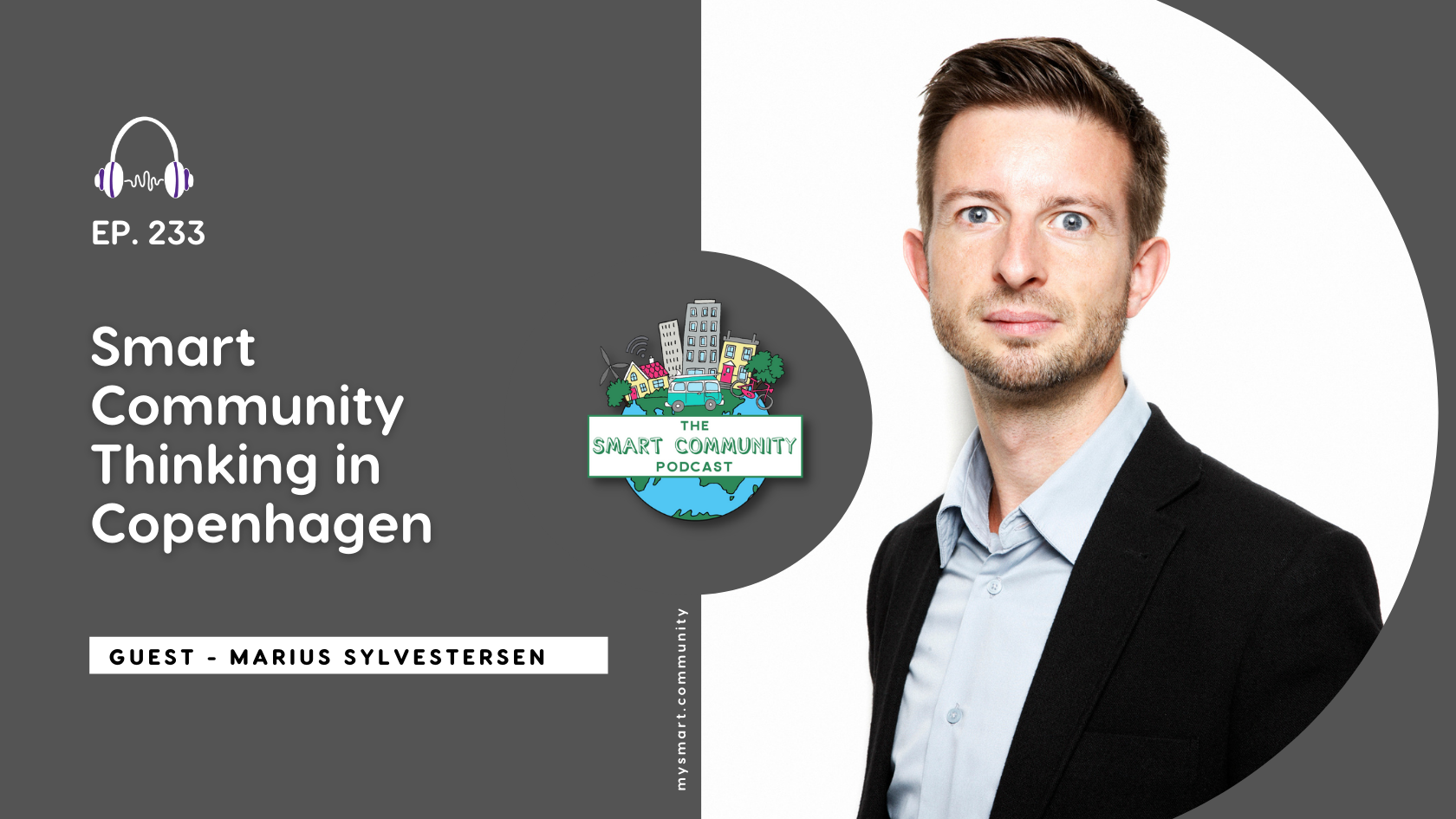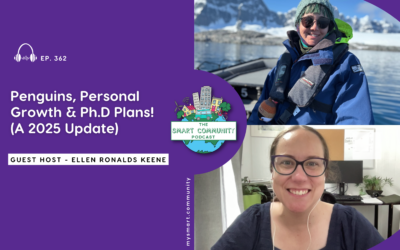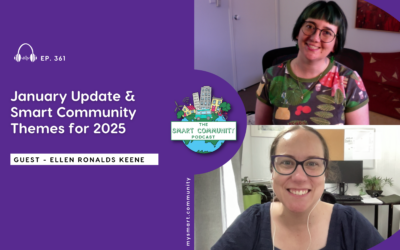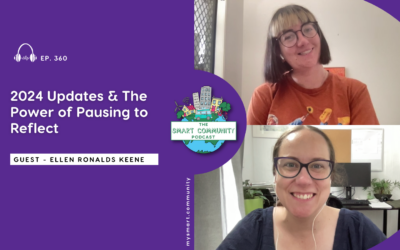Hi #smartcommunity friends! In this episode of the Smart Community podcast I have a great conversation with Marius Sylvestersen, the Smart City Program Director for the City of Copenhagen in the Solutions Lab.
We begin by Marius sharing with us his background in sustainability, how he got into the Smart Communities space, his passion for interlinking technology and nature as well as building public and private partnerships and Marius tells us what a Smart Community is to him.
We then discuss how the use of digital technologies helps engage better with the community to accelerate local democracy before Marius shares with us some of the sustainability and green transition projects he is currently working on with the City of Copenhagen.
We finish our chat with Marius sharing some examples of how the City of Copenhagen uses technology to measure carbon neutrality and how they are working towards better mobility in the city. Marius talks about how important it is to listen to the community and understand their language to plan Smart Communities and we discuss the emerging trends of ‘ethical technology’ and the further use of digital tools for citizen engagement to better serve communities. As always we hope you enjoyed listening to this episode as much as we enjoyed making it.
Listen here:
What we cover in this episode:
- Marius’s background in sustainability and sociology
- How his interest in digital technologies got him into the Smart Communities space
- His passion for interlinking both the technological and nature domains of society together as well as building public and private partnerships
- Marius shares what a Smart Community is to him
- How the use of digital technologies helps with better community engagement, and to accelerate local democracy
- Marius’s shares an example of the sustainability and green transition projects he is currently working on
- How data and community engagement helps in planning Smart Communities
- How the City of Copenhagen uses technology to measure carbon neutrality and how they are working towards better mobility for the city
- The importance of community participation, listening to the community and understanding their language to gain further insights into the needs of the community
- The emerging trends of ‘ethical technology’ and how to best use technology to serve communities
Quotes:
“I guess I’ve been interested in digital technologies for many years, but also being a trained sociologist, I’m very interested in this human perspective and the societal perspective. So I’ve been waiting for my understanding to mature and perhaps also for the technology to mature. So we can actually use the data, use modern technologies to convert some of the most difficult problems that we are facing, especially in cities today.”
“So doing citizen engagement, that is not a new thing. It has been there, all along almost. And it’s mandatory in almost all of our planning processes, that we have some kind of interaction with the community and with the individual citizens. So it lies deeply within the DNA of city planning, in the knowledge that we have this orientation towards communities.”
“Because, one thing is what [we] can do as city planners, but citizens, they can actually do a lot. So if we are able to share this information in a nicely balanced manner with our communities, they could actually act upon it.”
“So I guess that’s a huge opportunity to work with the communities, not just working with companies, not just getting data but actually seeing the communities as the way that we can alter the behaviour in cities.”
“Also, from a planning perspective, it’s interesting, too. If we don’t have that data, we cannot act on it. And, if we have a map of where the problem areas are in Copenhagen, we can start to work on them. Whenever we’re doing the planning processes, laying out the city infrastructure, where to place schools and nurseries, which streets to make one directional, or whatever. So it gives us a lot of data grounds for actually working with city planning.”
“And probably the language being spoken by the communities would be more accurate, it’s more fluid, it’s more on par with what actually goes on in the urban environments in the community. So they would probably be one step ahead of us, would still use a, like, language of the old world or more, like, technological type of language, where they would be discussing around feelings, emotions, relation, stuff like that.”
“Tech is not good or bad, but it’s instrumental. So how do we put it in the service of the type of society that we want to build and that our citizens want to live in? That would be the real discussion going forward from here.”
Connect:
Find the full show notes at: www.mysmart.community
Connect with Marius via LinkedIn or Twitter
Connect with me via email: hello@mysmart.community
Connect with My Smart Community via LinkedIn or Twitter and watch on YouTube
The Smart Community Podcast is produced by Perk Digital.






0 Comments